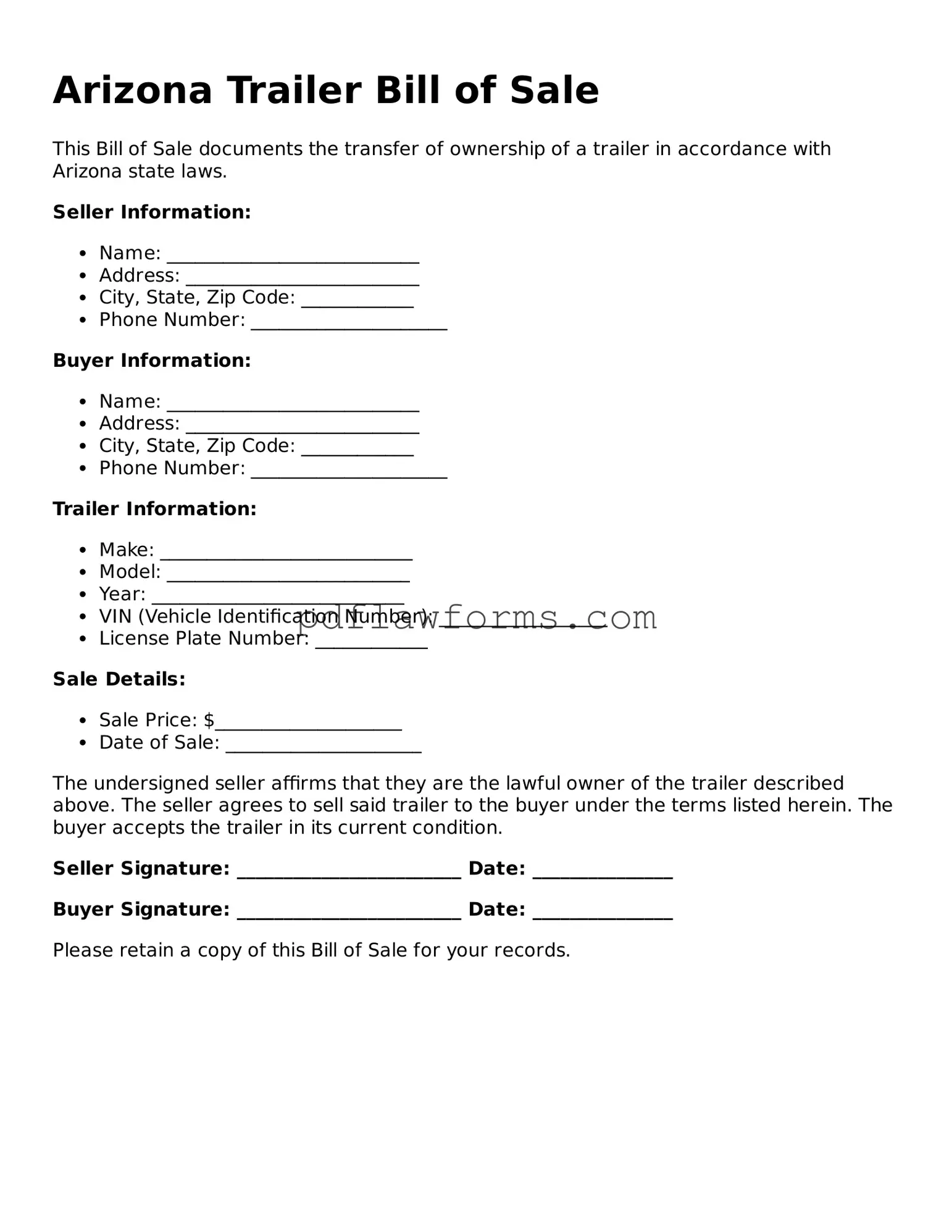Filling out the Arizona Trailer Bill of Sale form can seem straightforward, but many people make common mistakes that can lead to complications down the line. One frequent error is failing to include all necessary information. Each section of the form is designed to capture specific details about the transaction, including the buyer's and seller's names, addresses, and the trailer's description. Omitting even one piece of information can create confusion and potentially invalidate the sale.
Another mistake often seen is incorrect vehicle identification numbers (VIN). The VIN is a unique identifier for each trailer. If this number is entered incorrectly, it can lead to issues with registration or ownership verification. Double-checking the VIN against the physical trailer can save time and trouble later.
People also frequently overlook the importance of signatures. Both the buyer and seller must sign the document for it to be legally binding. In some cases, individuals may assume that a verbal agreement is sufficient. However, without signatures, the transaction may not hold up if disputes arise.
Inaccurate pricing is another common pitfall. It’s crucial to list the sale price correctly, as this figure will be used for tax purposes. If the price is too low or not reflective of the market value, it could raise red flags with tax authorities.
Additionally, many individuals fail to date the form. A date is essential as it marks when the transaction took place. Without a date, establishing a timeline for ownership can become problematic, especially if the trailer is involved in any future disputes.
Not providing adequate identification can also create issues. Sellers should attach a copy of their ID to the bill of sale to verify their identity. This step helps protect both parties and ensures that the transaction is legitimate.
Some people neglect to keep a copy of the completed bill of sale. This document serves as proof of the transaction and can be crucial if any questions arise later. Keeping a copy can help clarify ownership and provide a record of the sale.
Errors in trailer specifications, such as weight or model year, can lead to complications with registration. It’s vital to ensure that all details match the information on the trailer’s title and registration documents.
Finally, individuals sometimes rush through the process without reading the entire form. Each section is important, and understanding what is required can prevent many of the issues mentioned. Taking the time to carefully review the form can make a significant difference in the overall experience.

